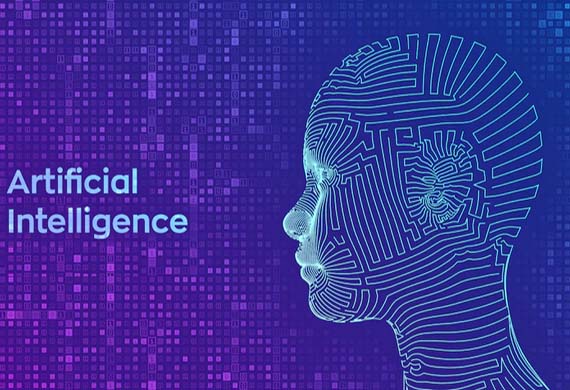
Artificial Intelligence and Machine Learning: Jobs of The Future
By: Thomas, content writer | Monday, 14 November 2022
Artificial Intelligence (AI) imitates human intelligence in robots trained to think and act like people. It can also refer to any computer that demonstrates characteristics of the human intellect, like learning and problem-solving.
Machine Learning (ML) is when a computer program picks up new information and adjusts to it without human involvement. ML is simply a branch of AI that keeps a computer's internal algorithms updated despite global economic shifts.
Both AI and ML are among the two most popular technologies for developing intelligent systems. Despite being linked and used interchangeably on occasion, there are distinct concepts under various contexts. Considering their popularity, there is also a lot of potential for career growth as they evolve into becoming jobs of the future.
Diversification of Jobs in AI & ML
According to a Gartner report, there has been a 270% rise in overall technology adoption over the past four years. Many businesses have incorporated AI in some way into their plans for business continuity. More than 52% of telecom companies have implemented chatbots for customer service, and medical diagnostic companies also use AI.
When organisations with AI and a shortage of skilled talent become apparent, a deployment difficulty arises. Due to the severe professional talent shortage, many companies are supporting training programs for staff with expertise in statistics and machine learning operations.
Graduate students' success depends on their ability to network and find employment after completing the best machine learning course. However, as the technological landscape is constantly changing, no system can be deemed ideal. The great news is that there is no shortage of employment in these industries and numerous career options are available.
Exploring Career Prospects
● Big Data Engineer
Building an ecosystem that will enable business systems to communicate efficiently is the responsibility of a prominent data engineer. Their primary duty is to produce and effectively handle the firm's big data, and they must also efficiently extract results from enormous amounts of data. Becoming a well-known data engineer will earn you a comparatively higher wage as compared to other AI positions. The average yearly income for a Big Data Engineer in India is 8.7 Lakhs, with a range of 4.2 Lakhs to 21.0 Lakhs.
● Data Scientist
Data scientists acquire pertinent information from many sources, analyse it, and draw valid conclusions. The conclusions gained have an impact on how various business-related challenges are handled. Based on multiple data patterns, historical data, and current knowledge, data scientists produce a variety of predictions. One of the most dependable AI jobs, it is a powerful system that aids analysts in analysing the underlying causes of problems, and their effects on the organisation.
● Machine Learning Engineer
Machine learning is a subset of AI, which runs simulations utilising the various data supplied and generates accurate results. Machine learning engineers are in charge of developing and maintaining self-running software that aids in machine learning initiatives. Since they manage enormous volumes of data and have outstanding data management abilities, they are consistently desired by organisations, and their role is rarely vacant.
● Scientific Specialist
Research scientists conduct in-depth studies on applications of machine learning and artificial intelligence. They have mastered statistics, deep learning, machine learning, and applied mathematics, and you would require a Ph.D. or advanced master's degree in computer science or mathematics. When applying for the position, an extensive understanding of Reinforcement Learning and Natural Language Processing (NLP) is required.
● AI Data Analyst
An AI data analyst’s primary duty include data mining, cleansing, and interpretation. Data cleansing allows for the gathering of the necessary information for data analysis. To prevent the process of data interpretation from being hampered, they eliminate any unnecessary data. The data analyst makes inferences from the data using statistical tools and techniques. You need a computer science or mathematics bachelor's degree to work as an AI data analyst.
● Product Executive:
In order to solve complex problems, an AI product executive must carefully collect data. It should be possible for you to recognise relevant issues that obstruct business transactions. Next, acquire comparable data sets to make data interpretations more understandable. This position requires you to calculate the business consequences of data interpretation after completion. These days, product executives are in high demand and are needed by all organisations. It is one of the highest-paying positions in artificial intelligence.
Getting Started in The Industry
Talking to individuals and networking with the appropriate professionals are the initial steps of breaking into a field. Employers look for applicants with at least a Bachelor's Degree when they apply for entry-level job opportunities, and many organisations provide internship programs.
Undergraduate degrees are a fantastic place to start. There are courses on artificial intelligence offered by Great Learning that help students create capstone projects that attract businesses and help them win lucrative employment.
Career Paths for AI Graduates
Despite being a young and specialised area, artificial intelligence occupations are diverse. There are many different careers in AI, each requiring a unique set of qualifications. Let's examine each of the tops in turn.
● Design for User Experience
This involves building products, comprehending consumer pain areas, and using this understanding to produce more complex software by working in product management.
● Data Analytics
This career path includes data visualisations for businesses, recognising trends in data, and getting valuable knowledge.
● NLP - Natural Language Processing
For businesses, virtual assistants and chatbots can be created. The average yearly income for an NLP Engineer in India is 8.8 Lakhs. This ranges from 3.5 Lakhs for individuals who have less than one year's experience to 25.5 Lakhs for those with more than 8 years of experience.
● Software Development
Each year, organisations with specialisations in machine learning and artificial intelligence, including Amazon, Netflix, Facebook, and Google, hire graduates. These businesses employ professionals in charge of creating AI automation technologies and enhancing their selection of goods and services.
Career Scope In Machine Learning & Artificial Intelligence
Machine learning and artificial intelligence involve a lot of self-learning, which requires highly motivated people who want to work in these fields. However, as machine learning and top artificial intelligence courses by Great Learning are naturally extensive and prepare students for prospective employment options, the time and effort involved are worthwhile.
Leading corporations like IBM, Google and Apple do not consider a college degree a hiring criterion and instead ask candidates to submit portfolios. Students in this field must keep up with recent developments since AI and ML rapidly evolve as career domains.
Final Word
In addition to achieving the technology mastery criteria, AI and ML experts are also expected to possess management and marketing skills. Hiring managers assess potential employees on their data competency, problem-solving abilities, and other industry-specific talents. you can gain more knowledge. Enrolling in Great Learning’s best machine learning course online will improve your steadiness in these areas and your capacity to collaborate on developing projects.
Most Viewed
- 1 Women's Health Startup HerMD Closing Doors Amid Industry Challenges
- 2 5 Famous Women in Indian Armed Forces
- 3 Saudi Women No longer Require Male Permission for Clothing Choices, says Prince MbS
- 4 Kolkata Medtech Startup Innovodigm Raises Rs 5.5 Crore Seed Funding Led by IAN Group
- 5 Yamunanagar's Kashish Kalra Honoured after Securing 111th Rank in UPSC Civil Services Exam
- 6 Madurai Appoints Its First Woman Corporation Head
- 7 IAS Vijayalakshmi Bidari Appointed as the new Nagpur Divisional Commissioner
- 8 American Entrepreneur Lucy Guo Overtakes T Swift to become Youngest Female Billionaire
- 9 ICC Women's World Cup 2025 Trophy Showcased at Indore's Holkar Stadium
- 10 Aparna Saxena's Beauty Venture AntiNorm Launches in India
- 11 Vidya Nataraj Co-Founded BlueStone Jewellery & Lifestyle files IPO
- 12 5 Women Freedom Fighters of India
- 13 Dr. G Krishnapriya appointed as CEO for Trichy
- 14 M3M & Sirona Partner to Introduce Menstrual Hygiene Vending Machines in 15 Locations
- 15 Punjab Govt launches SHE Cohort 3.0 Supporting Tech-led Women Startups
- 16 Indian origin Lawyer, Sweena Pannu appointed as the US New Superior Court Judge
- 17 The Aurora Tech Award recognizes 4 Indian Women-led Startups
- 18 Kerala's Republic Day parade featured an all-female tableau
- 19 Manisha Kabbur Becomes Karnataka's First Woman International Karate Coach
- 20 Director K. S. Ravikumar's Daughter Maalica Ravikumar Launches Life Coaching Company 'Evergrowth Academy' for Women
- 21 Leezu's Raises Pre-Seed Funding to Accelerate Growth in Sexual Wellness Industry
- 22 Sattu: Super-easy summer drink for PCOS gut healing
- 23 Swathi Nelabhatla creates Sitha App, India's First Women-Exclusive Gig Platform
- 24 7 Timeless Female Kathak Dancers & their Iconic Legacies
- 25 Meet 7 Iconic Women Architects of Modern India & their Most Impactful Work
- 26 This Woman-led Insuretech Startup is Helping Bridge the Education Financing Gap in India
- 27 Women Leaders Share Lessons Learnt from India Women's WC Win
- 28 5 Enterprising Women Founders Powering Singapore's Tech & Innovation Landscape
- 29 4 Women. 4 Stories. One Vision for Smarter, Stronger Healthcare
- 30 Global Gender Gap Narrows to 68.8%, But Full Equality 123 Years Away: WEF Report 2025
- 31 Changemakers: 7 Women Entrepreneurs Taking the Make in India Movement Forward
- 32 Meet Lucy Guo, The Youngest Self-Made Female Billionaire Disrupting Tech
- 33 How Women are Driving India's Festive Online Shopping Surge






